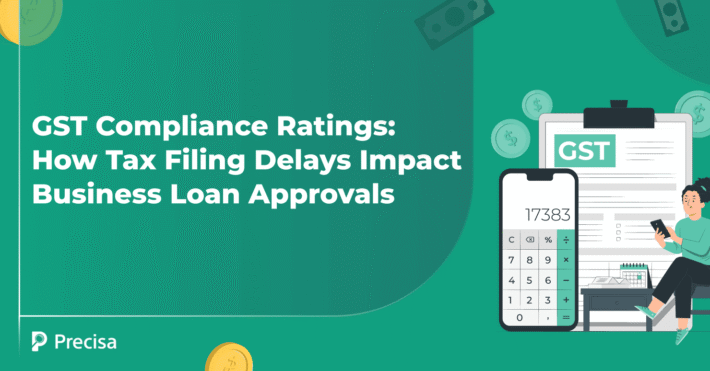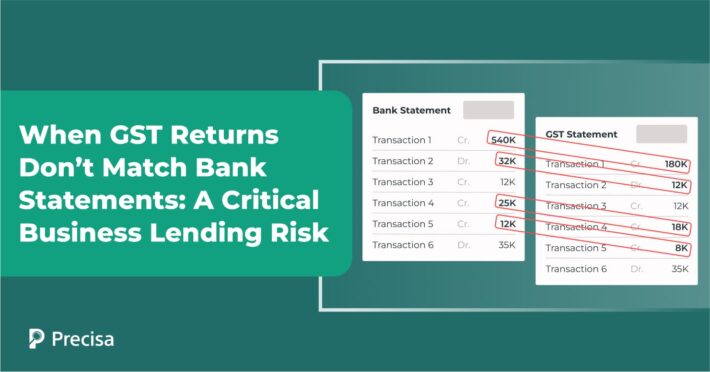From 2017 to 2022: A Collision Between GSTR and MSMEs

We are in 2022, and India’s economy is evolving amidst a global crisis. However, to achieve the $5 trillion economy dream by 2024-2025, the country certainly needs economic recalibrations. It wasn’t long ago when the pandemic caused an unprecedented downfall for the global economy, not to mention the MSME sector.
Currently, the MSME sector is the second-largest driver of India’s GDP, making 29%. With innovators and entrepreneurs strengthening this ecosystem, MSME acts as a catalyst for employment and growth.
The Indian government has taken steps to boost the MSME sector for quite some time now. Few such steps include demonetisation, implementation of GST, and, more recently, the Atma Nirbhar Bharat Mission that gave momentum to the MSME sector.
Nevertheless, with all the developments pertaining to the MSME sector in India, it still needs strengthening to continue to deliver stabilised growth.
In this article, let us see how GST will impact the MSME sector, and what the future looks like?
Implementation of GST
In 2017, the Government of India (GOI) enacted the ‘historic’ GST Bill at the stroke of the midnight hour, honouring India’s independence announcement at the same time back in 1947.
It was widely reported that the Indian economy took a giant leap. The bill was driven by “One Nation, One Tax” philosophy, which would mean replacing multiple indirect taxes and subsuming them into one.
This step further reduced the compliance burden on the side of taxpayers and eased tax administration on the government’s side.
What is the Impact of GSTR on MSME
Four years down the lane, many small businesses continue their struggle with filing Goods and Services Tax (GST) returns. Well, it seems like everything didn’t unfold as it was planned.
For FY 2020-2021, the GOI has extended the last date for filing of Annual GST Return to 28/02/2022.
Rolling out GST brought the concept of online GST registration and e-filing of GST Returns. Although India is a fast-paced economy, adapting to technology is taking its sweet time.
All that said above, it is safe to say that GST is a double-edged sword for MSMEs. So, let us see how it has impacted the MSME sector:
How GST Positively Impacted MSMEs?
Here’re some positive impacts of GST on MSMEs:
- With the implementation of GST, taxpayers now do not have to run to multiple departments for tax-related documentation. Since it’s online, it has become more convenient to file.
- Earlier, business proprietors had to pay a cumulative of 32% tax. However, now it has reduced to 18-22%, thanks to GST. Additionally, a tax levied on businesses with a turnover between Rs.10 and 50 lakh is lesser. As a result, the tax burden has been minimised to a greater extent.
- Owing to the Central States Tax, it became a hurdle for the small businesses to widen their reach and extend their customers. GST has resolved the issue as MSMEs can now expand their market.
- The GST has manifested itself towards increasing the taxpayer base. The taxpayer base has doubled during the period of 4-years, from 66.25 lakh to 1.28 crore. Around 88% of the GST payers who timely filed the returns belonged to micro, small and medium enterprises.
- GST eliminated most interstate duties, resulting in free movement of goods. Further, the costs of retaining large stocks were also alienated.
- As per the new rules introduced in the GST bill in the year 2020, the use of Input Tax Credit for discharging GST liability to 99% was restricted. However, small and medium enterprises are exempted from this rule since it is not applicable for entities that have collected a minimum of Rs. 1 lakh as income tax in the last two years. The new rule has a threshold limit of Rs.6 crores.
What are the Negative Impacts of GST on MSMEs?
Here’re some negative impacts of GST on MSMEs:
- Since all the taxes have now been subsumed into one, any business with a turnover of Rs.20 lakh will have to follow GST procedures. Earlier, only those with a turnover of more than Rs. 1.5 crore had to act in accordance with the rules of excise duty. Now, most of the MSMEs will have to pay a certain amount of their investment as tax.
- GST makes India one unified common market, and it follows the concept of tax neutrality. Earlier, greater duties were levied on luxury goods than normal goods and services. With the implementation of GST, all goods and services have the same tax. This widens the existing financial gap between big companies and MSMEs.
- Although GST brings a unified market into the picture, the tax is not levied on alcohols, liquors, and petroleum and oil-based industries.
Budget 2022 and What’s in it for MSMEs
Almost two years into the catastrophic COVID-19 crisis, the MSME sector looks towards Budget 2022 as a beacon of hope.
The year 2022 will witness a rearrangement of the GST provision and rate slabs. As a result, there will also be a reduction in the compliance burden for the MSMEs.
Recent announcements were made wherein the taxpayers with an annual aggregate turnover of up to Rs. 5 crores will not have to file the reconciliation statement in GSTR-9C. And the taxpayers with turnover up to Rs. 2 crores will not have to file annual returns in Form GSTR-9.
As a step towards Atma Nirbhar Bharat, customs duty on raw materials, parts, and components used by Indian manufacturers shall continue to decrease.
Apart from this, the GST tax rate slab structure is expected to be rationalised. The current four rate slab structure will be shifted to 3 slab structures. Apart from correcting increased GST collection, this will also improve the inverted duty structure on several goods.
Road Ahead for a Flourishing Sector
It is better late than never to improvise the current GST system to help the MSME sector regain its momentum. Undoubtedly, the compliance cost of GST puts a burden on business entrepreneurs. However, years down the line, the industry will become more competitive in the market field.
Small and medium enterprises are the future of the Indian economy, and with the government’s help, the sector shall adapt to the GST structure. From rationalisation of GST rates to the reduction of the compliance burden, the landscape of GST will progress towards supporting MSMEs.




